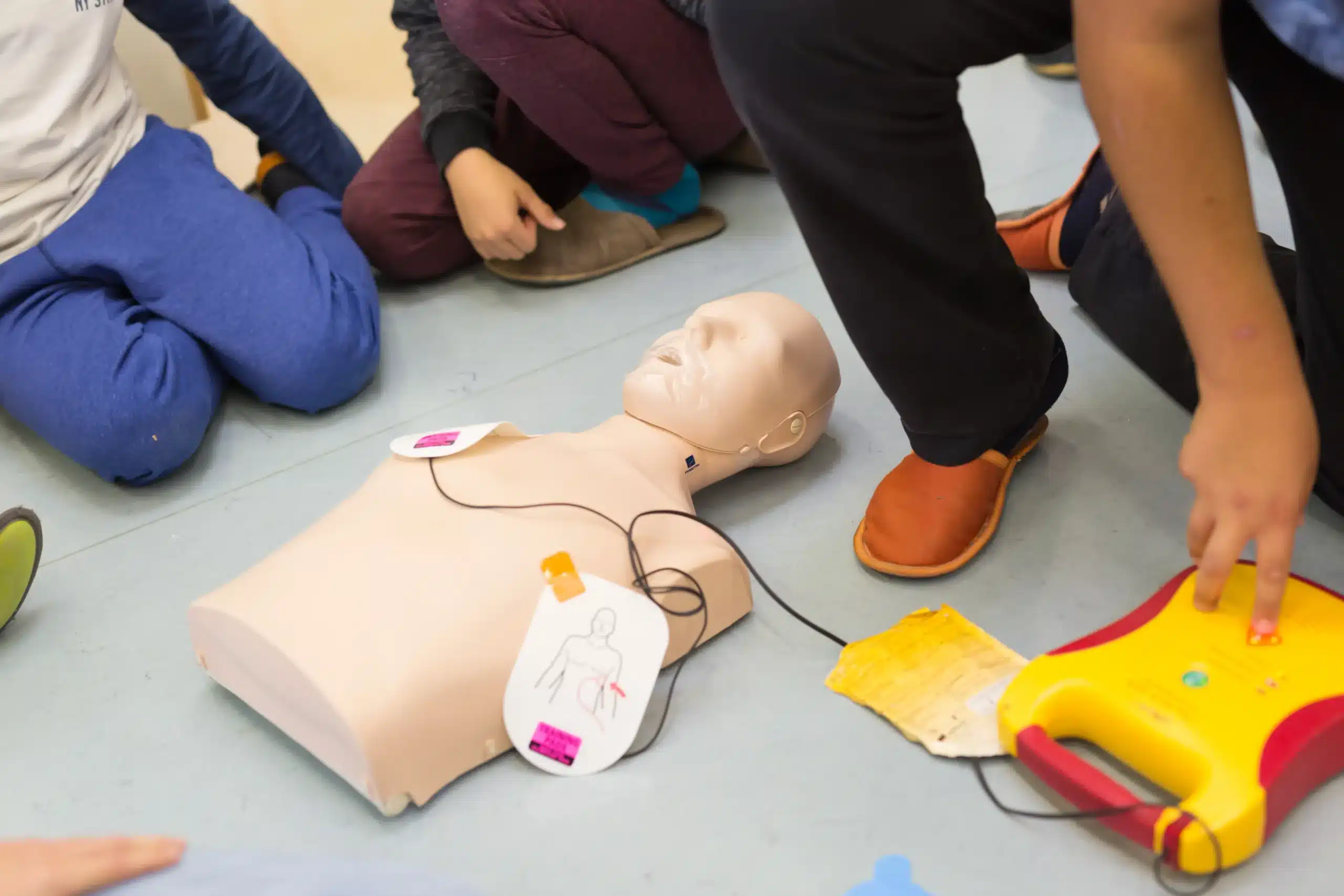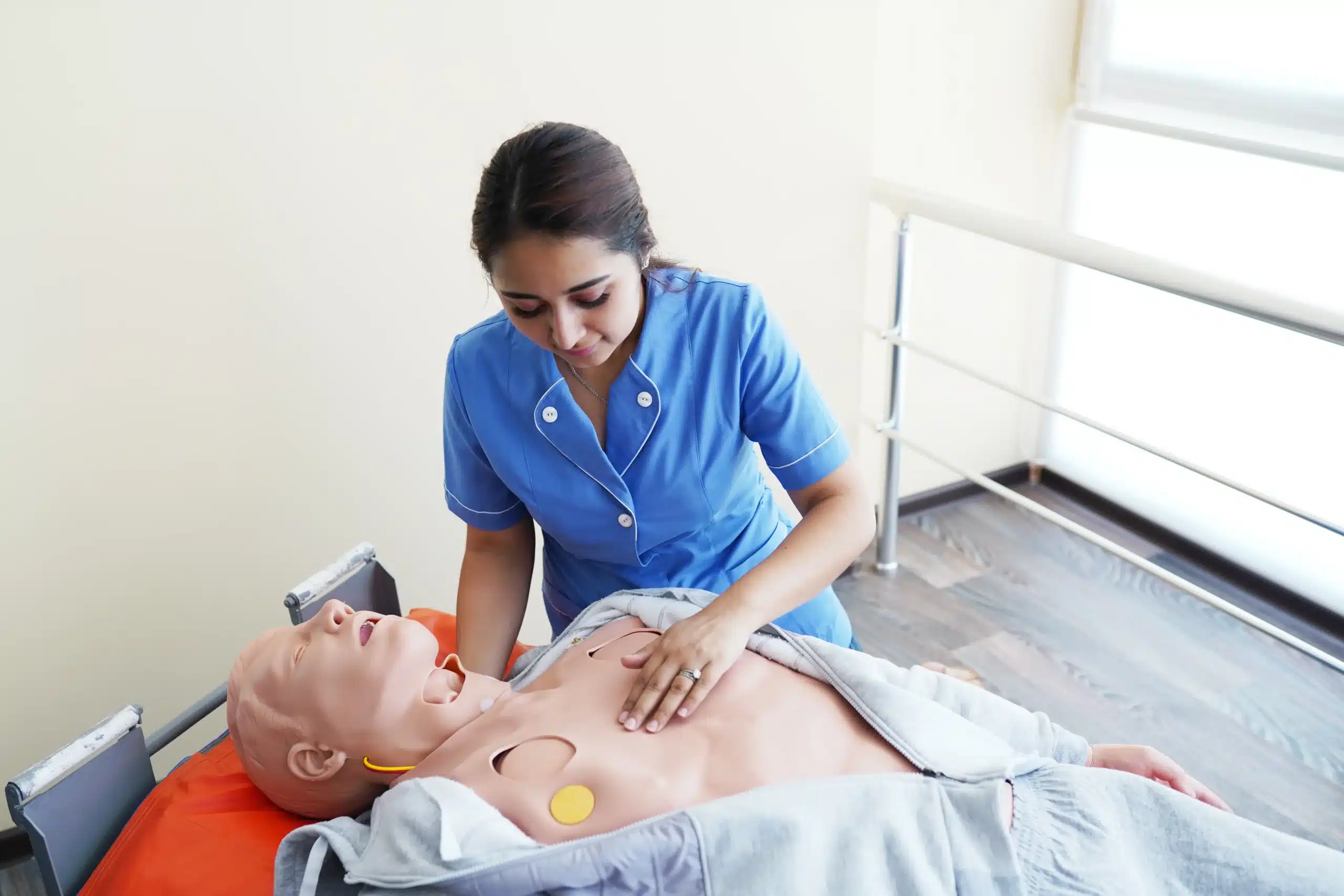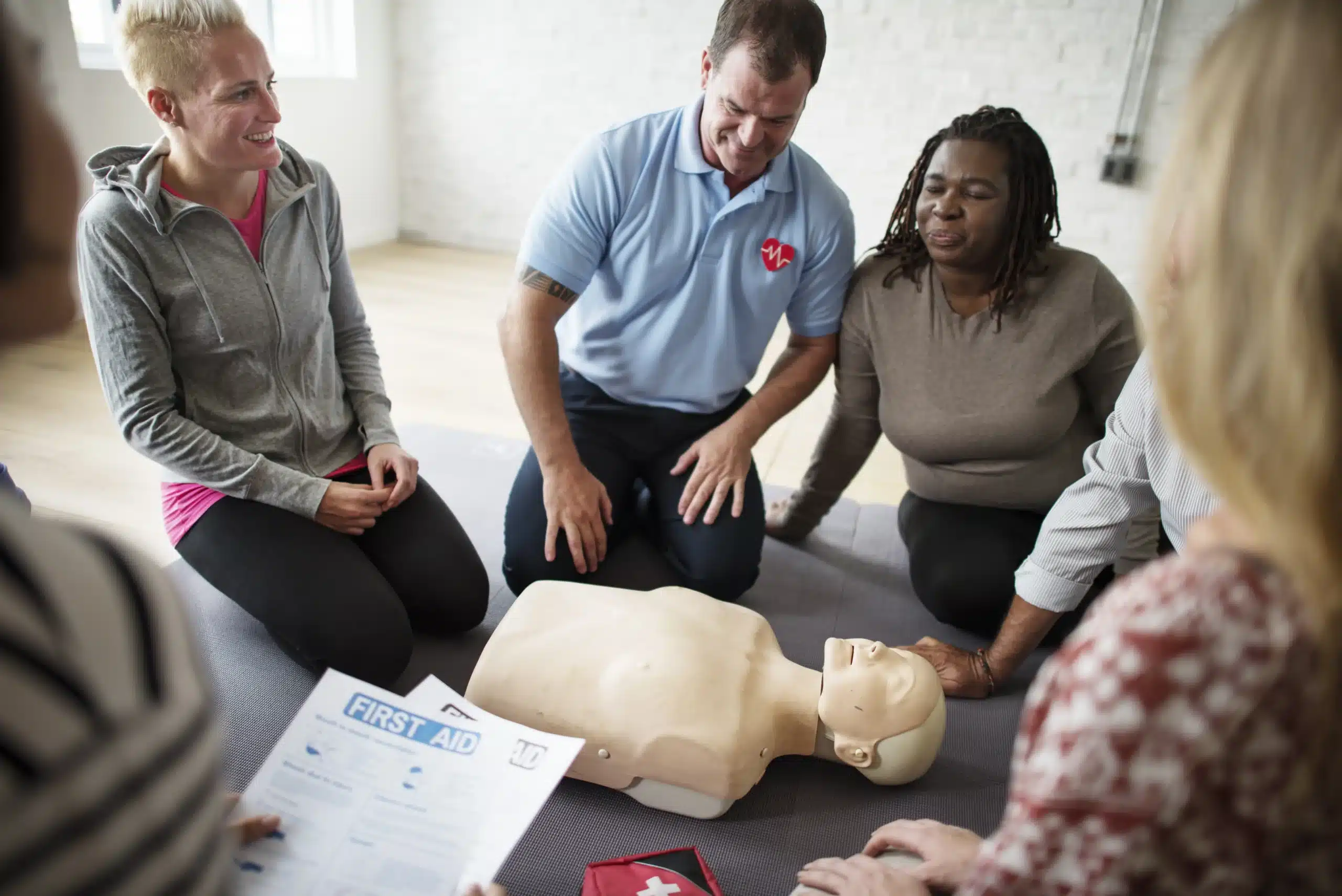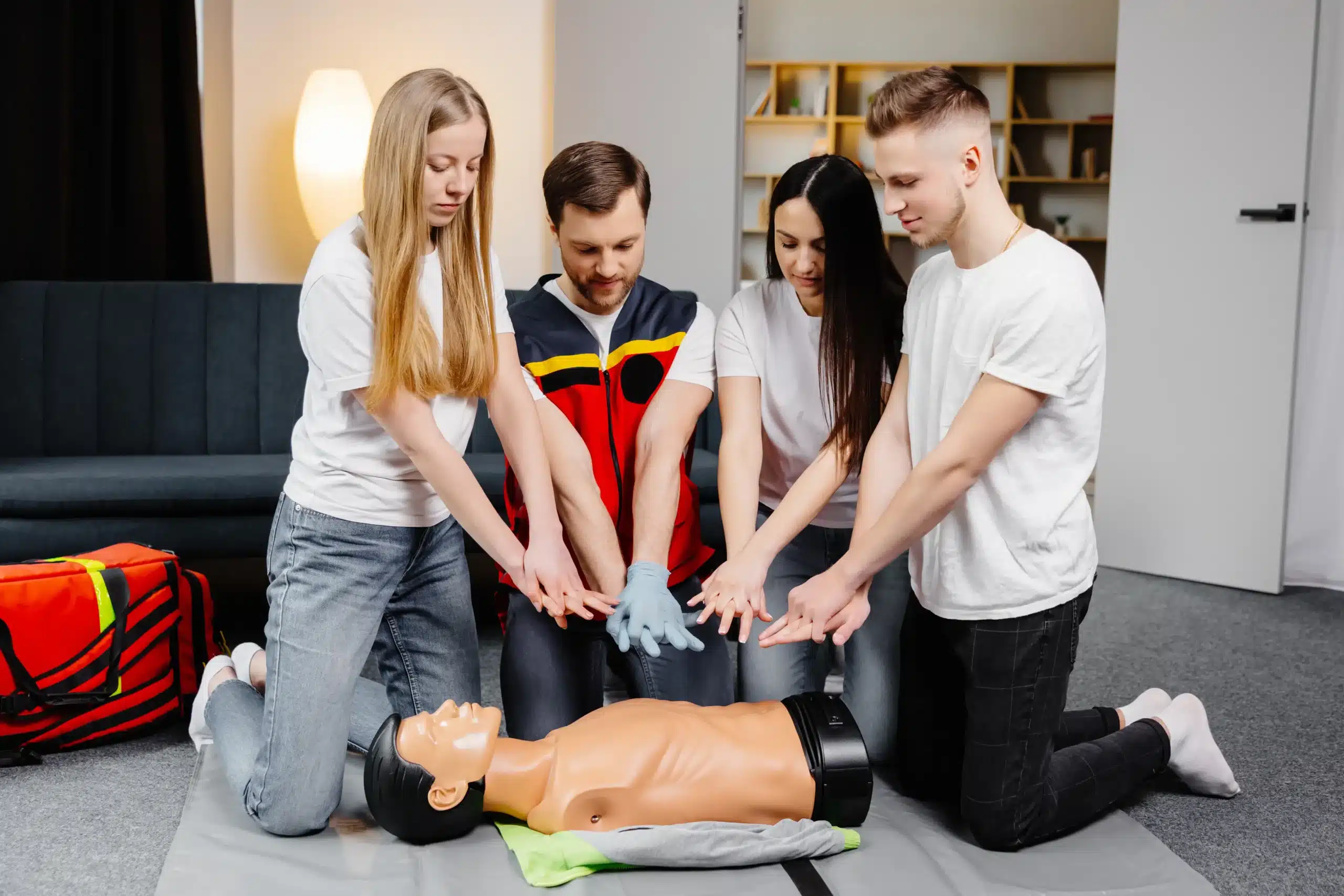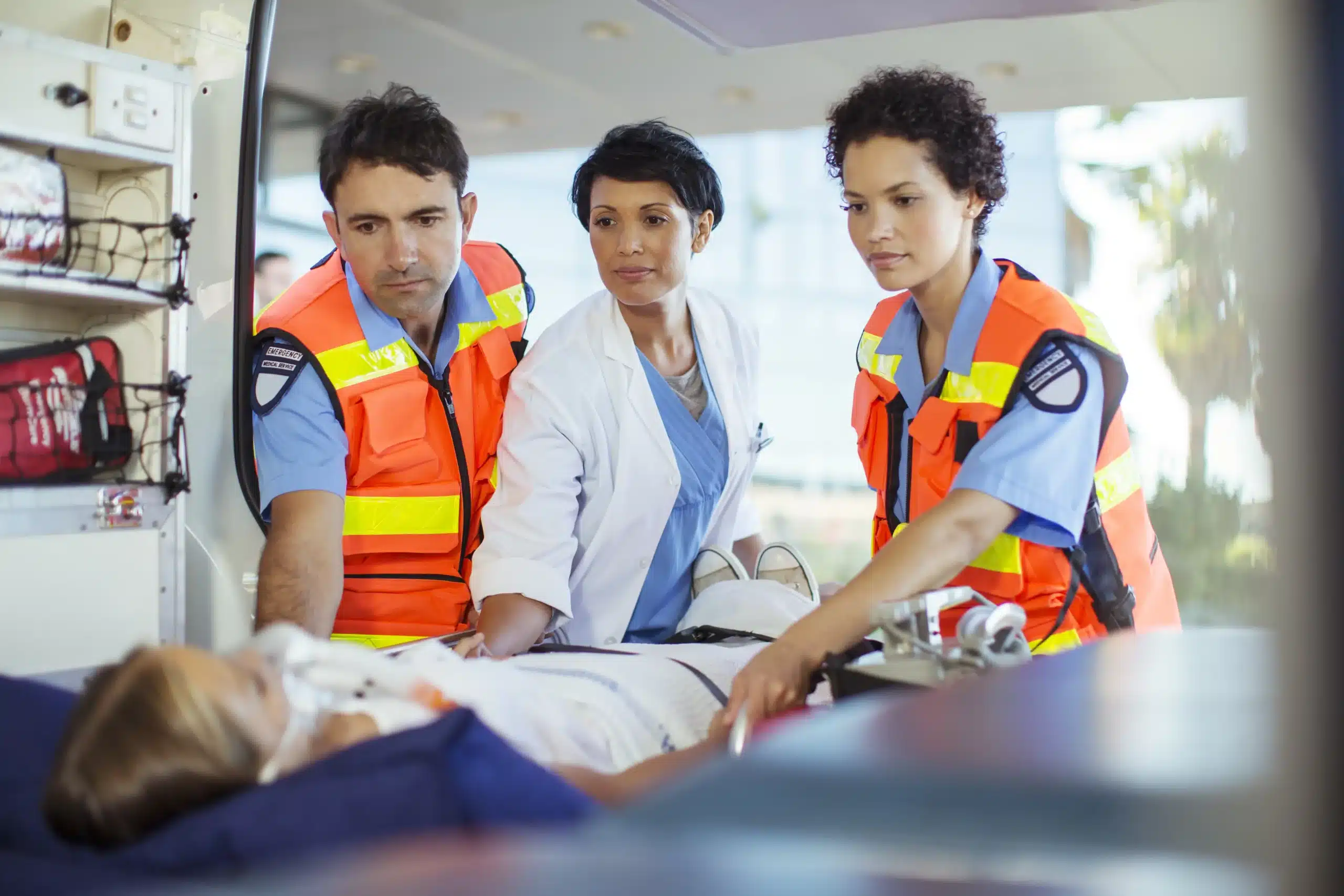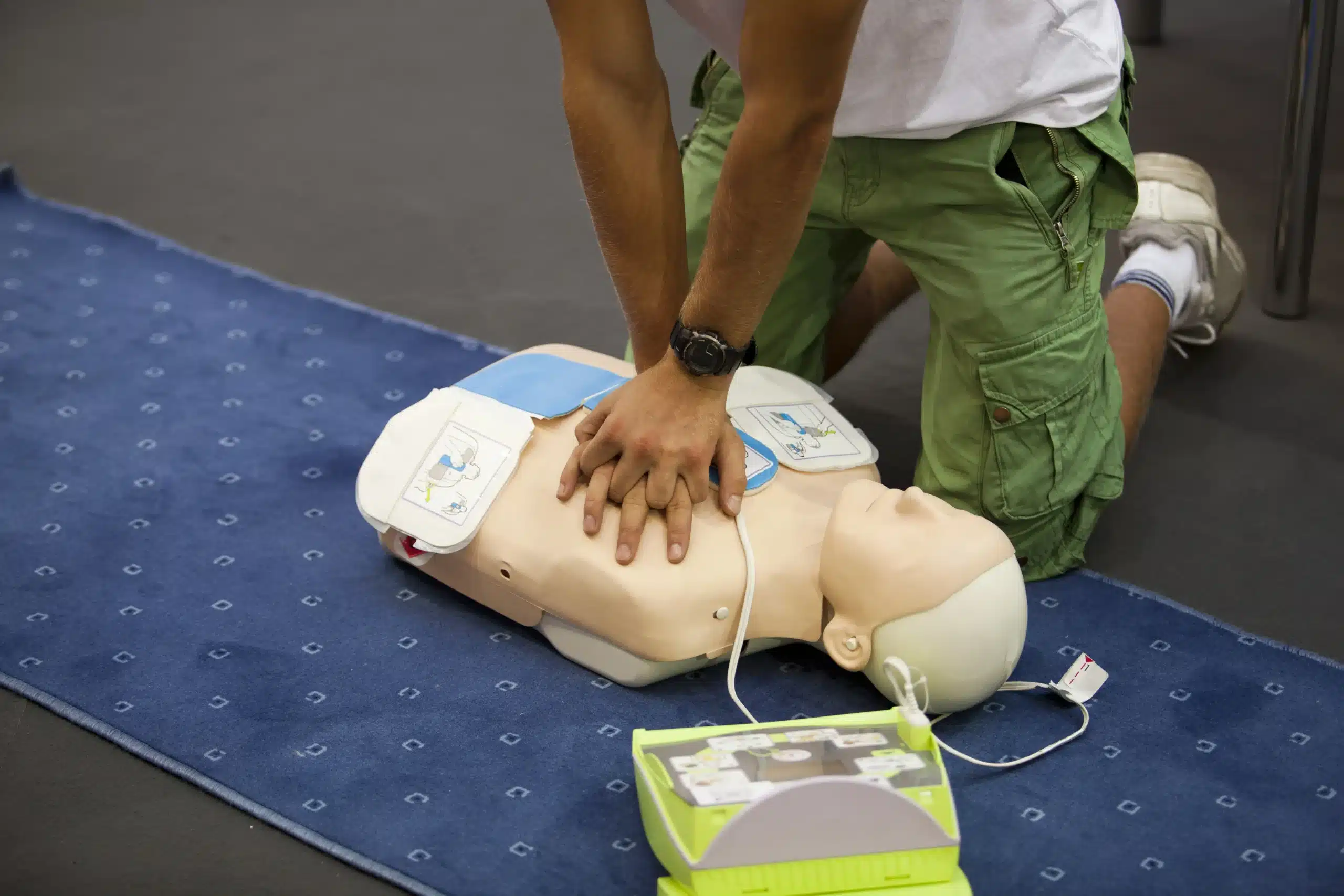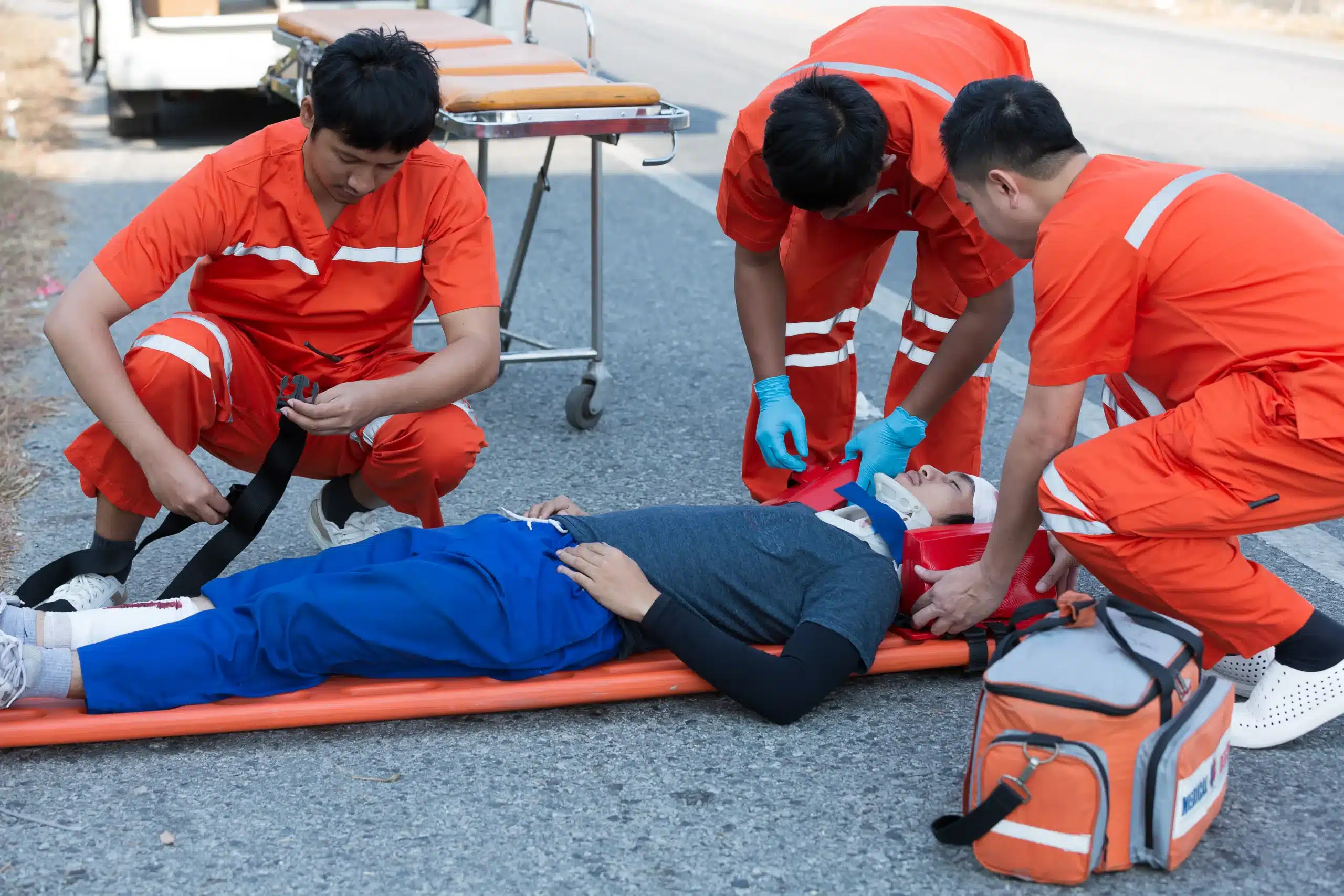Empowering yourself with life-saving skills starts with CPR training. This guide is your go-to resource for finding CPR classes in Dublin, California. We’ll cover everything from the basics of CPR to finding the right class for your specific needs. You’ll learn about the different types of CPR certifications available, the essential skills you’ll acquire, and the benefits of being CPR certified. We’ll also discuss ways to find discount CPR classes in Dublin, making this valuable training accessible to everyone. Whether you’re a healthcare professional, a childcare provider, or simply someone who wants to be prepared for emergencies, this guide will help you navigate the process of finding the perfect CPR class in Dublin.
Key Takeaways
- CPR Certification Empowers You to Act: Learning CPR and first aid provides you with the skills and confidence to respond effectively during emergencies, offering immediate assistance while waiting for professional help. Find a course that aligns with your specific needs and schedule.
- Affordable Training Options Are Available: CPR training doesn’t have to be expensive. Explore resources like group discounts, seasonal promotions, and compare pricing from various providers to find a course that fits your budget.
- Maintain Your Skills to Make a Difference: Regularly refresh your CPR knowledge and skills to stay prepared for emergencies. Consider blended learning renewal courses for a flexible way to keep your certification current and maintain your confidence in providing assistance when needed.
What is CPR?
CPR, or Cardiopulmonary Resuscitation, is a life-saving technique used when someone’s breathing or heartbeat has stopped. It involves chest compressions, and often rescue breaths, to maintain blood flow and oxygen to vital organs until professional help arrives. Learning CPR empowers you to act in these critical situations. For a more in-depth look at CPR, check out our guide to CPR classes in Dublin.
CPR Class Types
Dublin offers various CPR courses to fit different needs, from basic community classes to specialized certifications like BLS (Basic Life Support), ACLS (Advanced Cardiovascular Life Support), and PALS (Pediatric Advanced Life Support). Providers like Dublin CPR Classes offer comprehensive training and certifications in these areas, plus First Aid. This lets you choose training that aligns with your goals, whether you’re a healthcare worker, childcare provider, or want to be prepared for emergencies.
Essential Skills You’ll Learn
CPR classes provide practical skills for various emergencies. You’ll learn adult, child, and infant CPR, how to use an AED (Automated External Defibrillator), and basic first aid, including relieving choking. These skills build your confidence to handle medical emergencies and potentially save a life. For additional information on CPR and first aid training, see this guide.
Find Affordable CPR Training
CPR certification is a valuable investment, but we understand wanting to find the best deal. Thankfully, there are several ways to access affordable CPR training in Dublin, Livermore, and San Ramon. Let’s explore some smart strategies for saving money without compromising the quality of your training.
Organizations Offering Discounts
Many organizations understand the importance of widespread CPR training and offer discounts to make these lifesaving skills more accessible. For example, healthcare providers, students, and members of professional organizations may be eligible for reduced rates. Check with your employer, school, or any relevant groups to see if they partner with CPR training providers or offer discounts. Dublin CPR Classes offers a low price guarantee and often features discounts for groups. Be sure to ask about special rates when you register. You can also explore options for CPR renewal in nearby cities to compare pricing and find the best fit for your budget.
Seasonal Promotions & Group Rates
Keep an eye out for seasonal promotions. Some CPR training providers offer discounts during certain times of the year, like back-to-school season or during CPR Awareness Week. Another great way to save is by signing up with a group. Gather your friends, family, coworkers, or community group and inquire about group discounts. Group rates can significantly lower the cost per person, making training more affordable for everyone. Our comprehensive guide to CPR classes in Dublin offers more insights into finding the right class and potential discounts.
Compare Prices in Nearby Cities
CPR class prices can vary based on location. It’s worth comparing prices in nearby cities like Livermore and San Ramon to see if you can find a better deal. However, factor in travel time and expenses when considering classes outside of Dublin. A slightly lower price might not be worth it if it involves a long commute. Check our Northern CA CPR directory for a comprehensive list of training centers and their locations. You can also review our guide to CPR classes in Dublin for more information on local providers and pricing. Remember, the most affordable option isn’t always the best. Prioritize a reputable provider that offers high-quality instruction and certification recognized by organizations like the American Heart Association. For those looking to renew their certification, our CPR renewal guide offers helpful resources and tips for finding affordable options.
Why Get CPR Certified?
Knowing CPR can be the difference between life and death. It empowers you to act quickly and confidently during medical emergencies, providing immediate assistance until professional help arrives. Learning CPR isn’t just about acquiring a skill; it’s about gaining the confidence to potentially save a life. Think of the peace of mind in knowing you can step up for your loved ones, colleagues, or even strangers in their most vulnerable moments.
Life-Saving Skills & Benefits
Beyond the profound ability to help someone in need, CPR certification offers a range of personal and professional advantages. For those in healthcare, or aspiring to be, an American Heart Association certification is a valuable asset, often a requirement, and can significantly enhance your career. Even outside of healthcare, many workplaces require or highly value CPR-certified employees. Adding this skill to your resume demonstrates your commitment to safety and preparedness. Plus, regular CPR training reinforces these essential skills. Don’t let your skills fade—stay current with your certification and be prepared to make a difference.
Choose the Right CPR Class
Finding the right CPR class is about more than just checking a box. It’s about equipping yourself with the confidence and skills to potentially save a life. Here’s how to choose a CPR class in Dublin that truly meets your needs:
Factors to Consider
When searching for a CPR class in Dublin, consider these key factors:
- Instructor Expertise: A qualified, experienced instructor can make all the difference. Look for instructors who are passionate about teaching and create a supportive learning environment. Dublin CPR Classes prioritizes experienced instructors dedicated to providing high-quality training.
- Course Content: Ensure the course covers essential CPR techniques, including chest compressions, rescue breaths, and how to recognize the signs of a heart attack or stroke. AED training should also be included, as AEDs are vital in many cardiac arrest situations.
- Class Size: A smaller class size often allows for more personalized instruction and feedback. This can be especially helpful if you’re new to CPR or prefer hands-on learning.
- Price: CPR class prices can vary. Research different providers and compare costs. Remember, the lowest price doesn’t always mean the best value. Dublin CPR Classes offers a low-price guarantee, ensuring you receive quality training at a competitive rate.
- Blended Learning Options: If your schedule is tight, consider a blended learning course. These courses combine online learning with in-person skills practice, offering flexibility and convenience. The American Heart Association’s RQI program is a great example of this approach.
Match Class to Your Goals
Dublin offers various CPR courses designed for different needs. Choosing the right course depends on your specific goals:
- Healthcare Providers: If you’re a healthcare professional, you’ll likely need a certification like BLS, ACLS, or PALS. These courses provide in-depth training and are often required for specific healthcare roles. Dublin CPR Classes offers BLS, ACLS, and PALS certification courses.
- Community Members: For the general public or workplace requirements, a basic CPR and First Aid certification might be sufficient. These courses teach essential, life-saving skills applicable to various situations.
- Childcare Providers: Those working with children should consider a CPR course specifically designed for infants and children. These courses cover age-specific techniques. EMSA Child Care Health & Safety training is a valuable resource for childcare providers in California.
- Groups: If you’re coordinating training for a group, ask about group discounts. This can be a cost-effective way to train multiple people simultaneously. Dublin CPR Classes offers discounts for group bookings.
By carefully considering these factors and matching the class to your goals, you can find the perfect CPR training in Dublin to empower you to act confidently in an emergency.
Register for CPR Classes in Dublin
Ready to learn CPR? This section walks you through registering for a CPR class in Dublin, California, and gives you a preview of what to expect during your training. We’ll cover everything from finding the right course to understanding the certification process.
Step-by-Step Registration
Finding and registering for a class that fits your needs is straightforward. Here’s a simple process:
-
Explore Course Options: Dublin CPR Classes offers a variety of CPR certifications, from basic life support to advanced cardiovascular life support. They have options for everyone, including healthcare providers, parents, and teachers. Consider whether in-person, online, or blended learning (a mix of online and in-person) works best for you. Browse the course catalog to see what’s available. For those seeking American Heart Association certification, explore their BLS course options.
-
Check Class Availability: Dublin CPR Classes offers classes daily from 8 am to 10 pm, accommodating even the busiest schedules. Visit their website to view the calendar and find a date and time that works for you. If you’re part of a larger group, inquire about group discounts and coordinate schedules.
-
Contact and Register: Once you’ve chosen a class, contact Dublin CPR Classes or register directly through their website. Their customer service team can answer any questions and guide you through the registration process. They also offer a low price guarantee, so you can feel confident you’re getting a great value.
What to Expect During Training
Knowing what to expect can help you feel prepared and confident on the day of your training. Here’s an overview:
-
Course Content: CPR certification courses typically include a combination of online learning and in-person skills sessions. You’ll learn essential life-saving skills, such as adult, child, and infant CPR, proper use of an automated external defibrillator (AED), and how to recognize and respond to cardiac arrest and other emergencies.
-
Hands-On Practice: The in-person portion of the class focuses on hands-on training. You’ll practice CPR techniques on mannequins and learn how to use an AED in simulated emergency scenarios. This practical experience builds your confidence and prepares you to respond effectively in real-life situations.
-
Certification and Renewal: After successfully completing the course and passing a skills test, you’ll receive your CPR certification, often valid for two years. Dublin CPR Classes uses the American Heart Association’s RQI program, which offers a streamlined and convenient online renewal process. Staying current with your certification ensures you’re always prepared to provide assistance when needed.
Top CPR Training Providers in Dublin
Finding the right CPR training can feel overwhelming with so many options. To simplify your search, we’ve compiled a list of top CPR training providers in Dublin, California. Whether you’re looking for basic CPR certification or more advanced training like ACLS and PALS, this list is a great place to start.
Dublin CPR Classes
Dublin CPR Classes offers various CPR certifications, from basic life support to advanced levels. They offer in-person classes, online learning, and blended learning formats to suit different learning preferences. Their convenient online courses cover the essential knowledge and skills needed for CPR certification, allowing you to learn at your own pace. They’re committed to affordable pricing and offer group discounts, making high-quality training accessible. For those looking for training options throughout the region, their Northern California CPR directory is a helpful resource.
Other Options
Several other providers also offer CPR and first aid training in the Dublin area. Safety Training Seminars provides a range of courses, including certifications in CPR, BLS, ACLS, PALS, and First Aid. Their flexible daily schedule makes it easier to fit training into your busy life. For a broader look at CPR training options, this guide highlights various CPR classes available in Dublin, including specialized certifications. This comprehensive resource offers an overview of what to expect in a class and tips on choosing the right course for your needs. With a bit of research, you’ll find the perfect CPR class to suit your requirements.
Online vs. In-Person CPR
Choosing between online and in-person CPR training depends on your learning style, schedule, and specific needs. Both options offer valuable skills, but understanding the differences can help you make the best choice for your situation.
Pros & Cons
Online CPR training offers flexibility. You work through the material at your own pace, fitting it around your existing schedule. Dublin CPR Classes offers online courses that cover essential CPR knowledge and skills. This works well for busy individuals who can’t commit to a fixed in-person class time. However, online training typically requires a separate in-person skills session for hands-on practice and official evaluation.
In-person CPR classes provide immediate feedback and direct interaction with a certified instructor. You’ll practice skills in real-time, receive personalized guidance, and have your questions answered on the spot. These in-person CPR classes offer a two-year certification meeting OSHA requirements, often essential for healthcare professionals and many other jobs. While in-person training might be more expensive than online-only options, the comprehensive, hands-on experience can be invaluable.
Which Option Fits Your Schedule?
If your schedule is already full, online learning allows you to study whenever and wherever you have free time. You can then schedule a shorter in-person skills session to complete your certification. Dublin CPR Classes offers a flexible class schedule, with classes running daily, to accommodate various needs. If your schedule is more open and you value hands-on learning from the start, in-person training might be a better fit. Consider what works best for your learning style and time constraints when making your decision.
Make the Most of Your CPR Training
Prepare for Your Class
CPR training is a valuable investment, so you’ll want to get the most from your experience. Before your class, research CPR class prices in Dublin. Costs vary based on the type of course and provider. Safety Training Seminars, for example, offers a wide range of CPR and first-aid certifications, including CPR, BLS, ACLS, PALS, and First Aid. Dublin CPR Classes offers flexible and affordable training options, from basic to advanced life support, with in-person, online, or blended learning available. Check out their CPR class options to find the best fit for your needs and budget. Knowing what’s available helps you choose the right class and prepare accordingly. Consider factors like your learning style and schedule when making your decision. Some providers offer evening and weekend classes to accommodate busy schedules.
Maintain Your Skills
Once you’re certified, staying current with your skills is essential. Regularly reviewing the material and practicing your techniques will help you feel confident and prepared in a real emergency. When it’s time to renew, consider a blended learning CPR renewal course, which combines online modules with in-person skills sessions. This approach offers flexibility while ensuring you maintain hands-on proficiency. Many providers, including San Ramon CPR Courses, offer streamlined recertification classes that refresh your practical skills and cover any updates to the guidelines. Remember, AED training is often included in CPR certification, so make sure you’re comfortable using this device. Staying up-to-date with your CPR certification ensures you can provide effective assistance when it matters most.
Keep Your CPR Certification Current
CPR is a critical skill for responding to emergencies, but like any skill, it can get rusty. Staying current with your CPR certification ensures you’re always ready to act quickly and confidently. This section covers what you need to know about maintaining your certification.
How Long is it Valid?
CPR certification, earned through a recognized training course like those offered by the American Heart Association, is typically valid for two years. This timeframe helps you stay up-to-date with the latest guidelines and refresh your skills regularly. Check your certification card for the exact expiration date to avoid letting it lapse.
Recertification Process & Importance
Renewing your certification is straightforward. Safety Training Seminars offers a variety of American Heart Association (AHA) certified courses, including CPR and First-Aid, so you can easily find a class that works for you. Many CPR renewal courses now use a blended learning format, combining online modules with in-person skills sessions. This allows you to review the material at your own pace and then practice your skills with a certified instructor. Choosing the right CPR renewal course is essential for keeping your skills sharp and your certification current. It’s a worthwhile investment of your time that can have a significant impact.
Related Articles
- Why CPR is Crucial in Healthcare
- CPR Classes in Dublin: Your Complete Guide – Dublin CPR Classes
- CPR Renewal in Dublin: Find Courses & Discounts – Dublin CPR Classes
- CPR Courses in Dublin: Find the Right One For You – Dublin CPR Classes
- Group CPR Discount Classes in Dublin – Dublin CPR Classes
Frequently Asked Questions
How much do CPR classes cost in Dublin, California?
CPR class prices vary depending on the type of certification, the training provider, and whether you choose online, in-person, or blended learning. Check with providers like Dublin CPR Classes directly, as they often have a low-price guarantee and may offer discounts for groups. Comparing prices from different providers in nearby cities like Livermore and San Ramon can also help you find the best value.
What’s the difference between CPR, BLS, ACLS, and PALS?
CPR (Cardiopulmonary Resuscitation) is the foundational technique for responding to cardiac arrest. BLS (Basic Life Support) builds upon CPR, adding essential skills for healthcare providers. ACLS (Advanced Cardiovascular Life Support) is for advanced medical professionals, covering complex cardiac emergencies. PALS (Pediatric Advanced Life Support) focuses on the specialized needs of infants and children.
How do I choose the right CPR class for me?
Consider your specific needs and goals. Healthcare providers often require BLS, ACLS, or PALS certification. Childcare providers should seek training specific to infants and children. Community members wanting basic life-saving skills can opt for a standard CPR and First Aid course. Also, think about your learning style and schedule. Online, in-person, and blended learning options are available to fit different preferences.
How often do I need to renew my CPR certification?
Most CPR certifications are valid for two years. Staying current ensures you’re up-to-date on the latest guidelines and best practices. Many providers offer streamlined renewal courses, often using a blended learning format for convenience.
What if I have a busy schedule and can’t attend a regular CPR class?
Many CPR training providers offer flexible scheduling options, including evening and weekend classes. Blended learning courses, combining online learning with shorter in-person skills sessions, are also a great option for busy schedules. This allows you to complete the coursework at your own pace and then attend a hands-on session for practice and evaluation.


